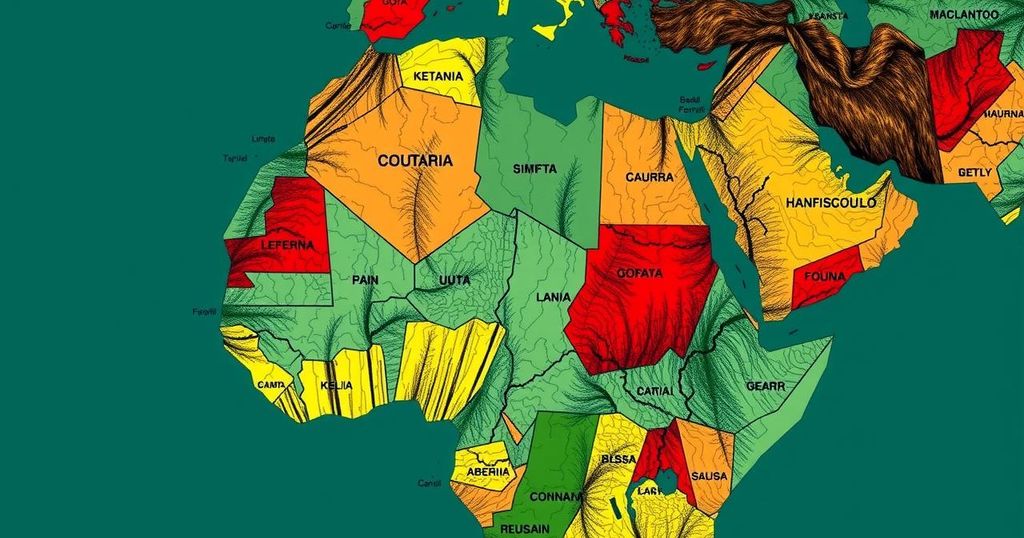The Climate, Peace and Security Fact Sheet for the Central African Republic highlights the challenges posed by climate change and ongoing conflicts. It details the vulnerabilities of the nation, including weak governance and resource mismanagement, and suggests comprehensive actions for the international community to address these issues effectively. The security situation remains volatile with ongoing tensions influenced by both local and regional conflicts.
The Climate, Peace and Security Fact Sheet concerning the Central African Republic (CAR) outlines the multifaceted challenges that the nation faces due to the intersection of climate change and ongoing conflict. CAR is particularly susceptible to the adverse effects of climate change because of its socioecological vulnerabilities, which are exacerbated by entrenched instability. Factors contributing to this vulnerability include a lack of effective state governance, mismanagement of natural resources, and a general deficiency in resilience at both household and community levels. Although there has been some improvement in the security landscape in recent years, it remains precarious. Various factions, including the Coalition of Patriots for Change (CPC), self-defense groups, and criminal elements frequently engage in hostilities against government troops and allied forces, including mercenaries known as the Wagner Group, now termed Africa Corps. The changing climate, coupled with the deteriorating security conditions in surrounding regions such as the Sahel and the Great Lakes, has resulted in the earlier migration of pastoralists into CAR, leading to increased tensions among communities. Furthermore, the ramifications of the conflict in Sudan have exacerbated the humanitarian crisis within CAR, particularly affecting the Vakaga and Haute-Kotto prefectures. The fact sheet emphasizes the necessity for the international community to adopt a comprehensive approach to address these interlinked issues effectively.
The Central African Republic is a landlocked nation in Central Africa that has been contending with both climatic challenges and civil strife for several years. Socioeconomic factors and inadequate infrastructure contribute to its vulnerability to climate change. Additionally, the persistent lack of governmental authority has left the population exposed to the repercussions of both environmental degradation and conflict. Recent years have seen some fluctuations in the security environment, but tensions among various armed groups remain a significant concern. As a result, the humanitarian situation continues to deteriorate, necessitating urgent action from the international community to alleviate suffering and promote stability.
In conclusion, the intertwining challenges of climate change and insecurity in the Central African Republic necessitate immediate and coordinated actions from the global community. The worsening humanitarian conditions, exacerbated by external conflicts and internal strife, require innovative and sustainable solutions to enhance resilience among vulnerable populations. Addressing these multifaceted issues is imperative to foster peace and security, ensuring a sustainable future for the Central African Republic.
Original Source: reliefweb.int






